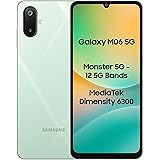Therapy is often hyped up as the ultimate fix for any mental health concern. So if you’ve ever walked out of a session thinking, Well, why didn’t it do anything for me???, we get your frustration.
In fact, new data from BetterHelp that surveyed 2,000 people suggests that many struggle to have that emotional breakthrough moment. Among the respondents who were advised to seek therapy, 44% didn’t follow through. The reasons? Seventy-five per cent of them said they had trouble finding the right therapist, while 74% stopped due to a poor match.
After these kinds of disappointing experiences, it’s easy to second-guess whether you’re somehow “too broken” to be “fixed,” or if your problems are too big even for a professional. But these assumptions aren’t accurate, says Esther Boykin, LMFT, founder of Group Therapy Associates in Washington, DC. The reality is, mental health support looks different for everyone—and what works for one person may not be helpful for another.
Here are the most common reasons why therapy doesn’t work for some people—and how you can set yourself up for a better one (if you’re open to trying again, that is).
1. You haven’t found the right type of therapy
Therapy is often painted as this scene where you lie on a couch, spill your guts and an expert magically has all the right answers. But, as you’ve probably figured out by now, it’s not that simple.
When it comes to treatment options, there are tons of different approaches personalised to fit various concerns, communication styles and personalities. If your appointments have been feeling like unproductive vent sessions, you might appreciate methods like cognitive behavioural therapy (CBT) or dialectical behavioural therapy (DBT), which focus on learning actionable skills and coping mechanisms. Or if you’re interested in unpacking unresolved childhood wounds, you might consider a modality like psychodynamic therapy that’s all about tapping into the unconscious factors influencing your present-day conflicts. And even if talk therapy isn’t your thing, you’ve still got alternatives like art therapy or body-centred somatic practices to consider.
For the most part, “a lot of it will depend on your personal preference,” says Annabelle Dortch, PsyD, a licensed psychotherapist based in Los Angeles—something you can absolutely ask your therapist about. (After all, they’re trained to know about the differences and recommend what’s best for you.) But just because your provider offers the “right” modality doesn’t guarantee success…which brings us to our next pointer.
2. You didn’t see the “right” therapist
According to Boykin, finding a good therapist is kind of like dating. Just because it didn’t work once doesn’t mean relationships generally aren’t for you. Rather, “this person simply isn’t a good fit,” she explains—and that same logic applies to meeting a provider who helps you grow too.
At baseline, you should feel safe, not judged, and comfortable opening up to this person, Dr. Dortch says. Other factors can also be reasons why therapy doesn’t work for some people—personality differences (maybe you’re looking for someone who’s soft-spoken, and this one is a bit too high-energy), communication style (perhaps your ideal practitioner is direct and blunt—no positive fluff) or just the overall vibe. Without that rapport, both experts agree it can be tough to be comfortably ‘you.’
3. You’re holding back
To get the most out of your sessions, you’ve got to be willing to be honest and vulnerable, Boykin says—something that’s easier said than done. To give you an example: Maybe you’re ranting about how your partner raised their voice at dinner, while leaving out pretty important details on your end. (Technically, you hurled the first few insults and constantly interrupted them too.)
Source link











